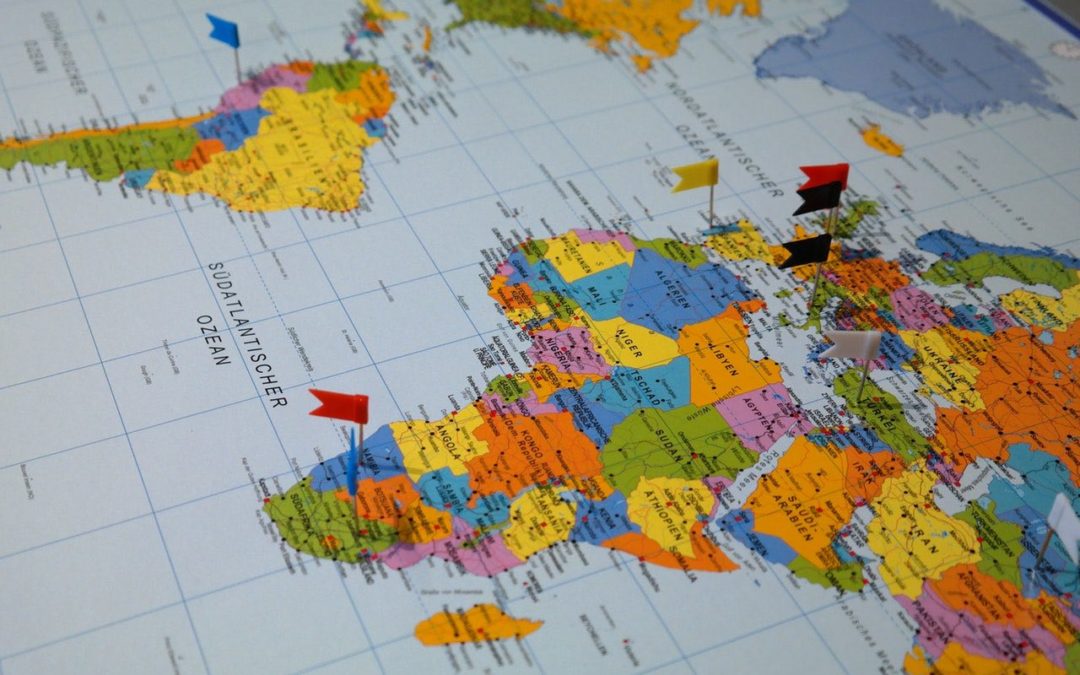It’s hard to get banned from Canada, but I know someone who did. He didn’t do anything illegal. But because he didn’t research Canadian laws and customs before visiting, he did some things at the border that the customs agents found suspicious. The result? An arrest and, eventually, a lifetime ban.While getting arrested abroad is an extreme scenario, it does happen. And that’s not the only trouble you might run into if you’re unaware. So, here are 4 things to research in advance to stay safe abroad.
1. Research local customs
Knowing local customs doesn’t seem like a safety issue, but it can be. Disregarding local customs draws attention to you, showing others that you’re an inexperienced tourist. It can also be offensive. For example, in Italy, it’s customary to not wear shorts, miniskirts, tank tops, or other short or sleeveless items to churches.
Remember, being a tourist won’t get you a free pass to ignore traditions. Be respectful of customs whether you agree with them or not. And if you have a serious reason why you can’t follow a cultural norm, like an allergy or a religious objection, be gracious about it.
2. Research local laws
Always, always find out what’s illegal in your destination. It’s an important part of staying safe abroad. What’s the drinking age? Are there curfews? Is littering a crime? What about smoking? What about chewing gum? Follow all laws during your stay, even if they sound ridiculous. Don’t forget some of the simple things you can do to prevent being a target for crime or victim of circumstance.
Be wary if you take a pocket knife with you. What is legal to carry varies between countries and even within some regions. If in doubt leave it at home but otherwise do your research and find something that is enough to do the job you need to, without breaking the rules e.g. lock-blades are a no no in the UK.
3. Research import and export laws
You don’t want to accidentally bring Tylenol into the EU or innocently return to the states with a dozen Kinder eggs. But people do that kind of thing all the time. They’re not trying to break the law; they just don’t know much about imports and exports.
Illegal imports and exports are an easy way to get into trouble on your big trip, so avoid them at all costs. Look at your country’s import and export laws and the import and exports laws of any countries you plan to visit on your trip.
4. Research healthcare, law enforcement, and other emergency services
First of all, if you get injured or sick abroad, you’ll need medical treatment. Consider getting travel insurance, especially if you have a preexisting condition. The travel insurance will help cover any healthcare costs.
Make sure you also talk to your healthcare provider and see if you can get partial coverage abroad or recommendations to cover the gaps. For instance in some destinations like Europe, you might be able to apply for a local insurance card.
Secondly, you need to know what to do if you run into legal trouble at your destination.The way law enforcement interacts with tourists and even citizens differs by location. If you contact the police while you’re abroad, the experience may be different than what you’re used to at home.
There’s no centralized database for researching police around the world. To get the most accurate information on interacting with law enforcement in your destination, speak with a local. You can seek out friends of friends on social media or query travel message boards to find the right person.
Finally, look up hospitals and emergency service numbers so that you know what to do if you need help. You won’t be able to dial 911 in many countries. You’ll also want to look up your country’s embassy in your destination, just in case.
In summary, be prepared
When you research these 4 things to stay safe abroad before jetting off, you have a massive advantage in keeping yourself safe and secure. Unlike my acquaintance, you won’t get arrested at the border because you don’t know what you’re doing. You can focus instead on having the time of your life.
Brianne Sandorf is a safety expert who has spent five years writing professional, research-based content. Previously, she worked on an award-winning gun safety course and served on a workplace safety committee. Brianne has a degree in English and creative writing from Westminster College.
By Brianne Sandorf


